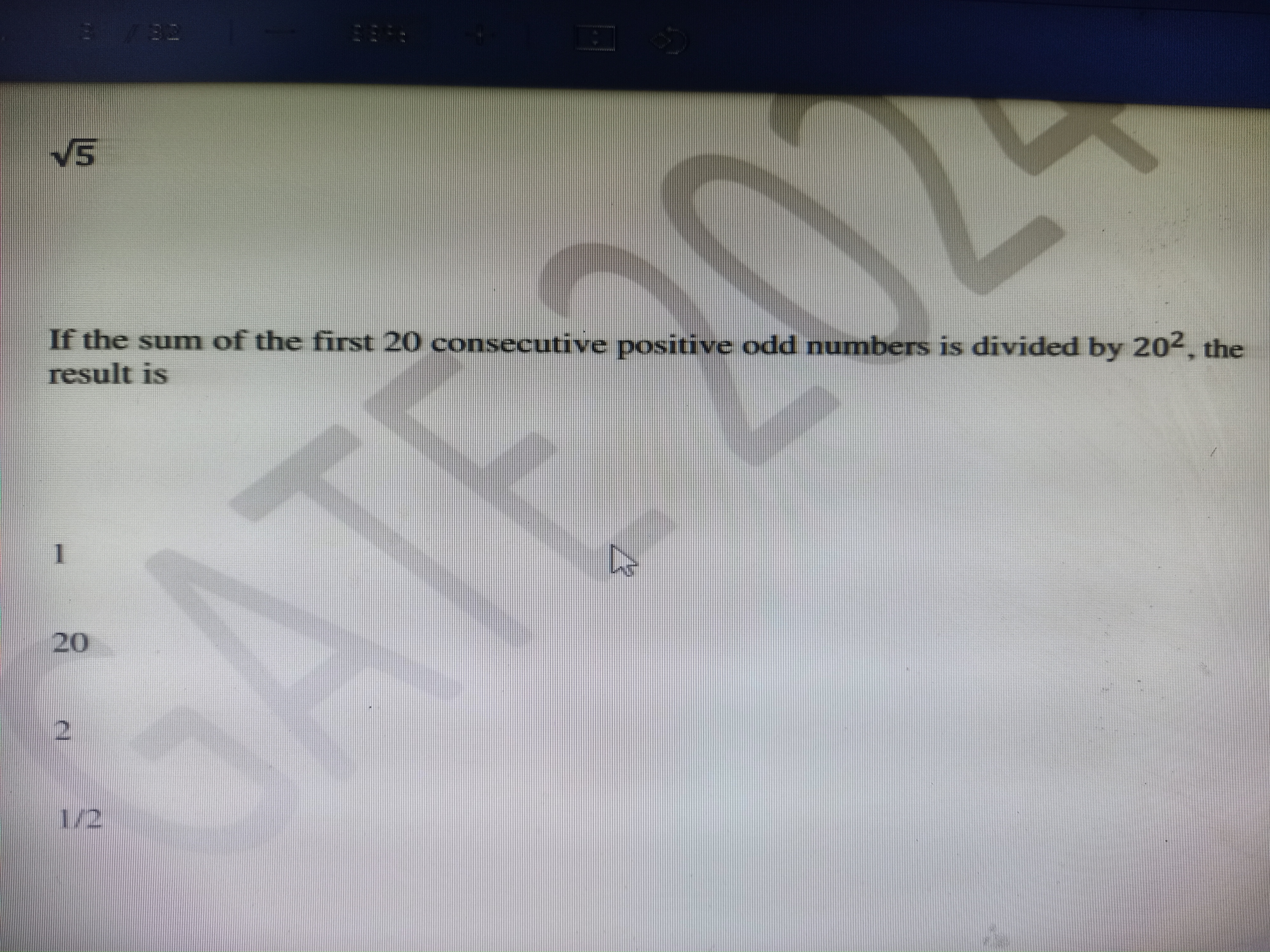If the sum of the first 20 consecutive positive odd numbers is divided by 20^2, the result is

Understand the Problem
The question asks for the result of dividing the sum of the first 20 consecutive positive odd numbers by 20 squared. To solve this, we need to first calculate the sum of these odd numbers and then perform the division.
Answer
The result is \( 1 \).
Answer for screen readers
The result is ( 1 ).
Steps to Solve
- Calculate the sum of the first 20 odd numbers
The formula for the sum of the first ( n ) odd numbers is given by:
$$ S_n = n^2 $$
For the first 20 odd numbers, we have:
$$ S_{20} = 20^2 = 400 $$
- Calculate ( 20^2 )
Now, we need to calculate ( 20^2 ):
$$ 20^2 = 400 $$
- Perform the division
Now divide the sum of the first 20 odd numbers by ( 20^2 ):
$$ \frac{S_{20}}{20^2} = \frac{400}{400} = 1 $$
The result is ( 1 ).
More Information
The sum of the first ( n ) odd numbers can always be represented as ( n^2 ). Therefore, when dividing the sum of the first 20 odd numbers by ( 20^2 ), we find that they are equal, resulting in a value of ( 1 ).
Tips
- Confusing the sum of odd numbers with an arithmetic series instead of using the ( n^2 ) rule.
- Not recognizing that ( 20^2 ) is also ( 400 ), which may lead to miscalculating the division.
AI-generated content may contain errors. Please verify critical information